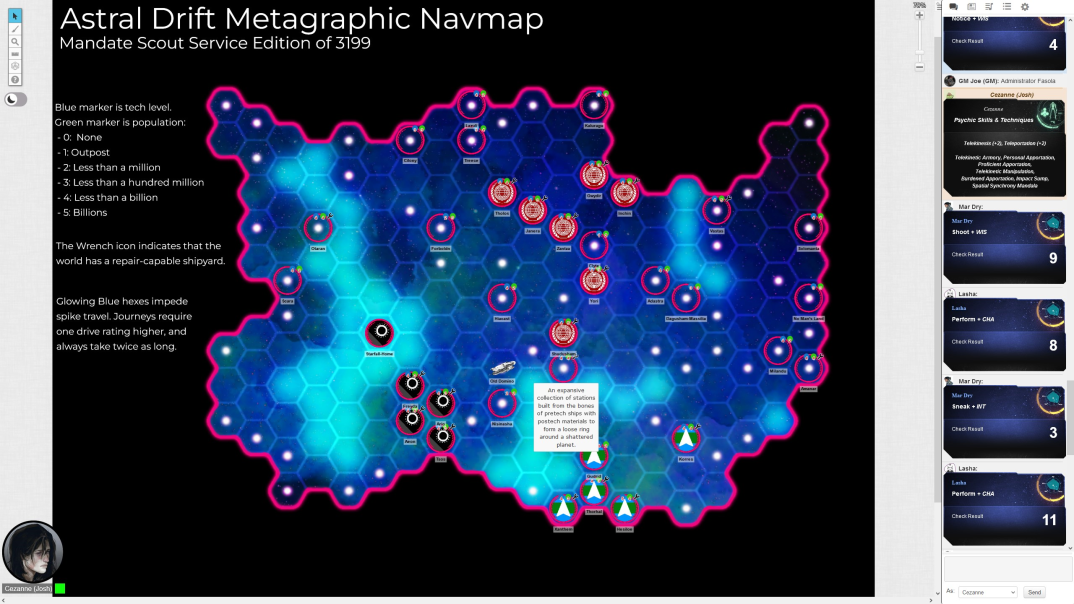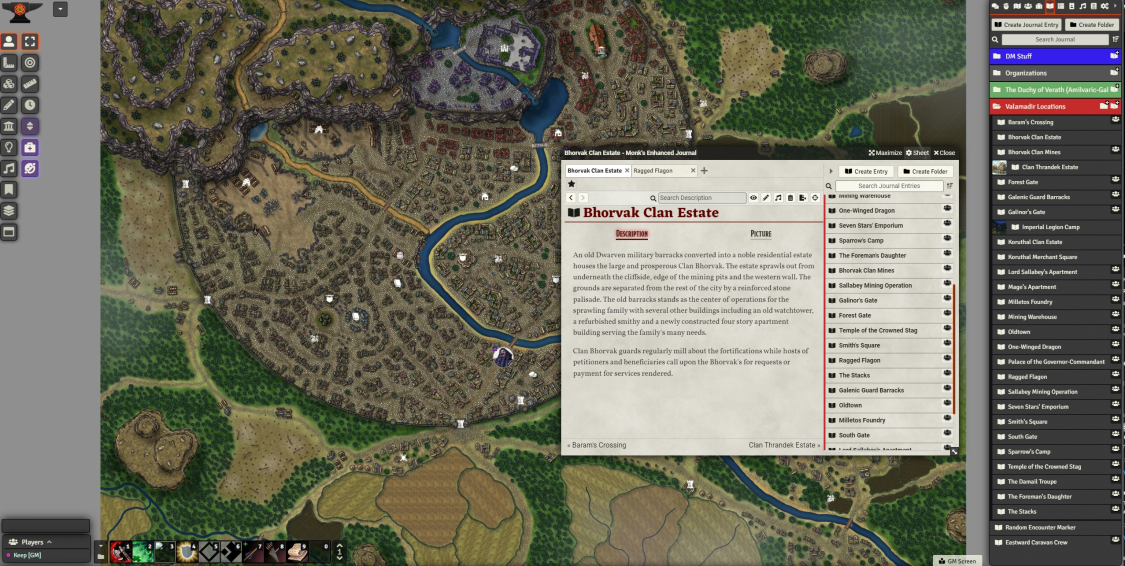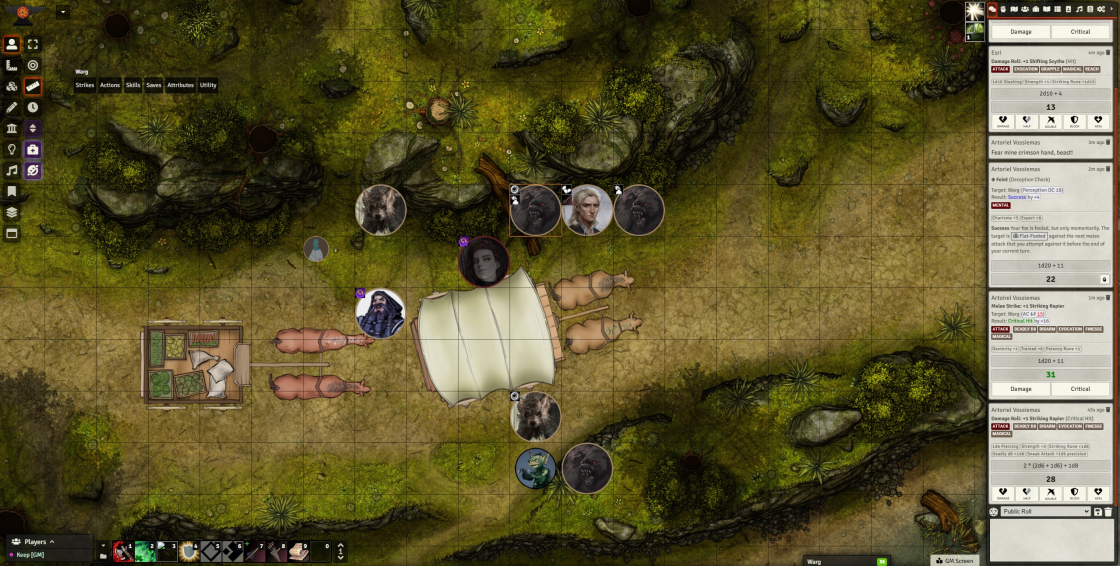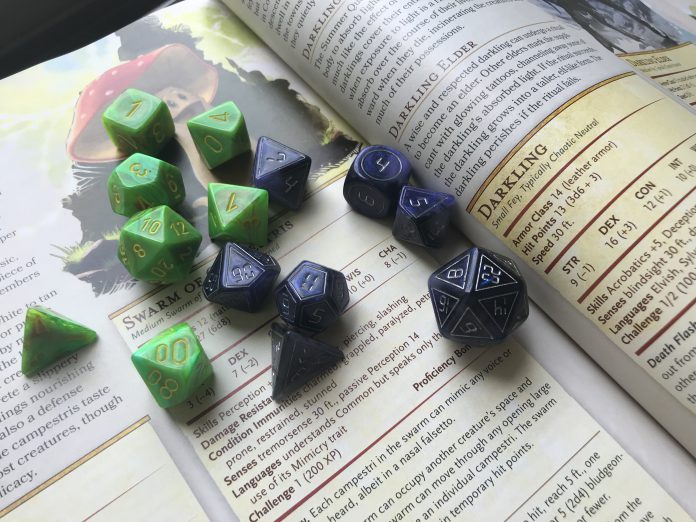Who doesn’t love TTRPGs? Sitting down with handfuls of dice, your meticulously curated character sheets, and hallucinating an adventure with your friends while sitting around the dining room table.
But what if you all can’t make it around that dining room table? What if all your friends interested in TTRPGs are in another city entirely? Another country? Modern problems need modern solutions.
Enter: Virtual Tabletops
While VTTs don’t have the personal charm that sitting around a table with all your friends ha, it makes up for in sheer convenience. Platforms designed to get you—and your friends—all playing your favourite systems together seamlessly, and with added features to boot!
Roll20
One of the most well-known sites when it comes to VTTs is Roll20. It is a longstanding staple of playing TTRPGs online, with a host of features designed to get your group playing with minimal effort required. All you need to do is create an account, create a game, and send your friends the invite-link. There is also a subscription service offering additional functionality to the core features that I’ll make note of as we pass them.
Roll20’s suite is basic, but effective. A blank canvas for you to create whatever you need, with the ability to upload images for use in the game. These images can be battle-maps, tokens for NPCs and PCs, splash-screens, art “handouts” to set the scene, and more. (Free-users have a much more limited upload budget than subscribers, so watch out for that if you’re someone who wants to upload a lot.)
There are some more fancy tools available as well, like the music-player, which allows for player-uploaded tracks to be uploaded for ambiance and mood. Roll20 also integrates with Tabletop Audio, BattleBards, and Incomptech to provide users a big range of tracks for a lot of scenes.

Some other fancy features, such as dynamic lighting which allows for real-time sight based on the tokens line-of-sight, are available with a subscription only. The fancy systems require more upfront work on the part of the GM but can really build a powerful ambiance for those who get into it.
Roll20 also comes stocked with character sheets for all types of systems, with community options available to spice it up. It’s hard to judge these sheets as they can vary so much in quality, but you can expect one thing: the more popular the system, the more well-designed the character sheet will be. Character sheets offer a place to jot everything down, and a lot of the maths a player might be expected to do is handled in the background. When a player rolls a die from their sheet, all the relevant modifiers are applied. Simple, and easy.
There’s a slew of GM tools available to make running a game easier, and more engaging. Folders make organising information available to the players a breeze, and creating handouts is as simple as writing in word – with about all the same features too. GMs can even make them available to certain players only, to represent hidden knowledge only their character knows, or a note slipped underneath a table.
Being the most mainstream VTT, and certainly one of the longest running, Roll20 has all-sorts of official material that integrates right into its systems, and the staff are only seeking to expand that integration to make it a one-stop shop. Adventure Paths come with entire libraries of art assets for battle-maps, creatures, and NPCs, as well as with an easy-to-pluck bestiary that comes with all the necessary stats that you can roll straight from the sheet.
Going even further on integration, Roll20 announced a merger with OneBookShelf, the parent-company that operates DriveThruRPG, and the Dungeon Masters guild, that’ll soon see entire rules PDFs available inside Roll20 for use by players & DM alike.
As a final note, if you’re in the often unfortunate position of having not-so-interested friends, Roll20’s site has an integrated LFG (Looking For Group) function. A big warning though: your millage may vary. I’ve made some great friends when I used to surf for games years ago in my teens, but I also was in a lot of games that went nowhere and met some real buttholes. Don’t be disheartened if something doesn’t work out. Sometimes making friends with some of the people in the group is all you need to find your new, online TTRPG crew.
FoundryVTT
A newcomer onto the scene, FoudryVTT emerged from of beta last year. FoundryVTT is the versatile, adaptable, one-purchase place for DMs who like a little more control over their VTT experience.
In its purest form, Foundry has all the same features as Roll20 does, and even some that go beyond. It has a dice-roller, your map, and all the cool little features that Roll20 gates behind its subscription service like dynamic lighting.

Where Foundry gets interesting is in the complete and utter customizability it allows for.
Foundry’s unique selling point is that it operates off of an incredible suite of community-made modules, a lot of which are completely free. These modules range from game-system support similar to Roll20, quality-of-life for GMs and Players, and new features to change how you interact with the game entirely. Some add-ons require additional payment, but there are a lot less of these as a rule.
Foundry isn’t even lacking in the official integration support either, as companies have started to offer bespoke modules for their games that are plug’n’play in a similar way to Roll20. (Cubicle 7 of Wrath & Glory fame sell module access with the book and PDF.) All you mapmakers out there will enjoy DungeonDraft’s integration as well, where walls and lighting will carry over seamlessly.

It is pertinent to mention that Foundry lives and breathes by these addons. Whilst it has a fine suite of features on its own, rivalling Roll20 and even eclipsing it in some areas, it can be a struggle when something you need can’t be found. Niche systems struggle to find people willing to code the modules for them, leaving them without proper character sheets, and it can be a real bummer when an addon you were enjoying gets abandoned.
If you’re coding-inclined, you can even develop your own modules to use. Foundry has articles documenting how to get started, and even suggests it might be a fun way to get started for beginners.
An elephant in the room with Foundry is that it isn’t simply log-on and play like Roll20 is. In order to play on Foundry, you must have a server that can host your world. Whether it’s a server you host independently in your home, or a hosting-service you pay for, you need one to play.
Foundry has a handy list of hosting service providers it has partnerships with, all of which are catered to users seeking an easy set-up, but it adds on a recurring fee that defeats the allure of the lifetime purchase. Foundry does its best to inform the users of the choices it offers with a handy hosting options guide, so read up there if you’re unsure.
Conclusion
I’d be remiss to not mention the other, smaller platforms out there as well, such as Fantasy Grounds, Owlbear Rodeo, and Above VTT. I can’t speak much about them, but they deserve the mention none-the-less.
Overall, if you’re someone who is totally new to the concept of playing TTRPGs online, then Roll20 is likely the better choice. Whilst it’s easy to feel a little limited without paying for the subscription, the accessibility and free features are simply unmatched, and they have to keep the lights on somehow.
Foundry might be worth the splash if you and your group have your eyes set on something a bit more advanced, more custom to you. You can try FoundryVTT with a web-demo they host on their website, so you can check it out before you buy.
Both communities for these VTTs are incredibly diverse and rich, and you can get lost in both. Roll20’s LFG section is a fantastic way to meet new people while not being the most reliable way to find a long lasting game. Foundry’s Discord is incredibly active and has many people who are willing to answer your questions should you have any. It’s a big, digital world out there. Explore it!


